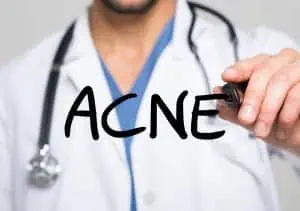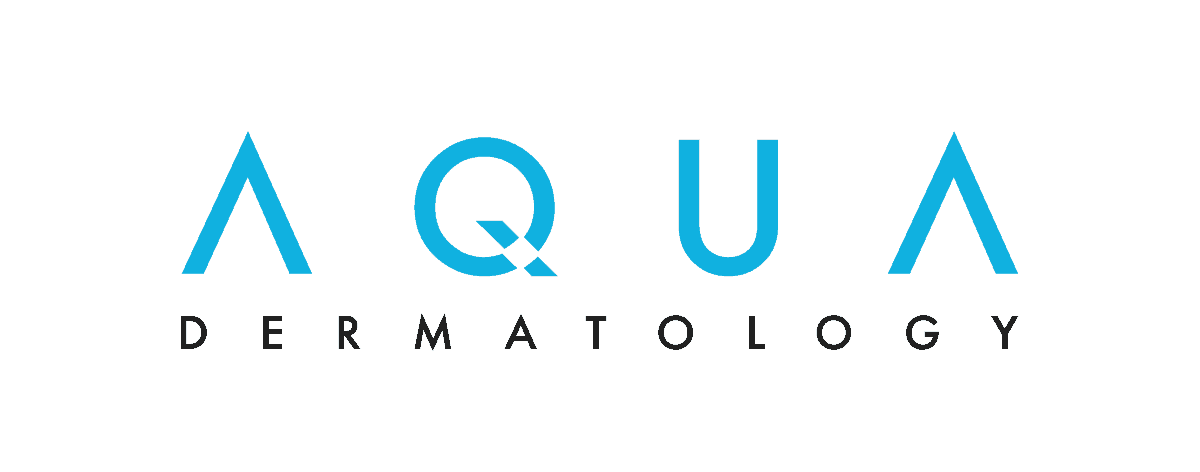
We’ve heard more than our share of acne treatment myths in recent years; from how people get acne, to how they can get rid of it, and just about everything in between. Let’s look at three of the more common misconceptions about professional acne treatment.
Myth 1: Dermatologists are basically professional strength pimple-poppers
This is probably the biggest myth about what dermatologists bring to the table when treating acne here in 2018. If psychiatrists are sometimes referred to as “shrinks”, and chiropractors as “bone crackers”, maybe it’s understandable that dermatologists are labeled by some (we forgive you!) as glorified “pimple poppers”. But, it’s also inaccurate.
Popping pimples is what plenty of people choose to do for themselves already. Plenty more watch graphic videos of the process on YouTube. But our Water’s Edge Dermatology acne experts and others will tell you, pimple-popping is perhaps the worst thing you can do to cystic acne.
This inflammatory act may satisfy an emotional need in the heat of an impulsive moment. But it traumatizes the pimple – both the clogged pore and the skin surrounding it. Your fingers may also be introducing bacteria to your skin and bloodstream that can actually worsen an acne outbreak.
Perhaps the worst part about giving in to frustration and impulsively popping a pimple (or carefully plotting the dark deed for days, either way!) is that it greatly increases your risk of developing an acne scar—either a permanent depression or bump.
So, no; professional acne treatment by a credentialed, qualified dermatology provider has nothing to do with pimple popping. The provider actually uses a very thin, sterilized needle to inject the pimple with medicine, usually an anti-inflammatory. Within minutes to hours, the pimple shrinks from the inside, which smooths the skin. No blood, pus, popping or scarring involved.
Myth 2: I had isotretinoin treatment, so I can’t have a facial
People with severe acne sometimes need a powerful oral medication called isotretinoin. Doctors used to caution patients to wait up to a year after stopping isotretinoin treatment before having cosmetic procedures and/or aesthetic treatments. Imagine just how frustrating that would be. You’re finally getting control of your acne with the right medication – but then hear you have to wait a year to have treatments that could rid you of acne scars and blemishes!
Thankfully, a panel of experts has concluded that there isn’t sufficient evidence to support such cautionary recommendations or restrictions any longer. While patients who have taken oral isotretinoin should still avoid mechanical dermabrasion and laser ablation procedures for 6-12 months, that’s all they need to avoid. There is no good reason to avoid manual dermabrasion, superficial chemical peels, laser hair removal, fractional laser procedures, or even some forms of facial surgery. If you have taken isotretinoin and want a cosmetic treatment or aesthetic procedure, discuss what for you with your cosmetic dermatology provider.
Myth 3: Stronger (more highly concentrated) treatments are always better
While a “stronger” dose makes sense for many medications (e.g. extra strength pain relievers, maximum strength cold relief, etc.), a higher concentration on the label doesn’t necessarily mean an acne treatment is any better for treating acne, or better for you.
When you apply something to your skin for acne, there’s a delicate balance between effectiveness and irritation. Products like benzoyl peroxide do tend to work a little better at higher concentrations. But the maximum concentration isn’t the best for everyone. In fact, many skin products such as benzoyl peroxide can be highly irritating to the skin at higher concentrations.
The bottom line on “stronger” formulas is to proceed with caution, always doing spot tests of any topical ointment being introduced to your skin for the first time. The most foolproof way to be sure you’re getting the best possible treatment for your particular skin and acne, at the right concentration and strength, is to find a Water’s Edge Dermatology office near you and receive professional acne treatment and guidance from a licensed, credentialed and experienced dermatology provider.





